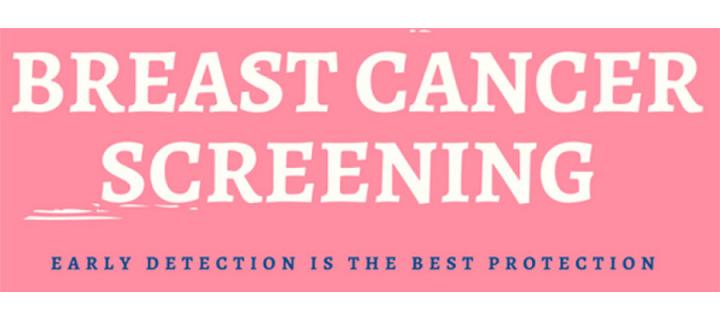The impact of the Covid-19 pandemic on breast cancer early detection and screening
Dr Jonine Figueroa and international colleagues report on the impact of the Covid-19 on breast cancer early detection and screening providing important information to help mitigate the impact of the pandemic on early diagnosis and treatment.

Screening is a major strategy in the global fight against cancer aimed at detecting cancer early when it’s easier to treat so patients can survive from cancer and live long healthy lives. Screening and its subsequent diagnostic and treatment services are proven to avert deaths from cancers of the cervix, breast, colon/rectum, and lung. From the moment the World Health Organization declared that the initial outbreak of SARS-Cov-2 had attained pandemic status on March 11, 2020, health services were severely disrupted and strained in many countries. Controlling the pandemic diverted personnel and resources away from cancer screening, diagnosis and treatment activities. Appointments were cancelled or missed, laboratory testing of specimens, radiological imaging, and other diagnostic services were interrupted because healthcare personnel needed to prioritise the extraordinary mortality associated with the pandemic.
To adapt to Covid-19 pandemic and reduce the possibility of infections to many vulnerable individuals, protocols for reducing in-hospital transmission became nearly universal. This has unfortunate downsides such as pausing screening and cancelling of elective surgeries. Even as the public health system began to resume elective care activities, capacity for cancer screening and diagnosis could function in many places only at a fraction of its former pre-pandemic levels. Many populations and individuals eligible for screening remained fearful to attend hospital or clinical appointments. There is an urgent need to make screening regain its value as the mainstay of cancer prevention and control.
Recognizing this critical public health issue, the journal “Preventive Medicine” recently published a special issue titled “From disruption to recovery: The Impact of the COVID-19 Pandemic on Cancer Screening", which brings together in one collection the relevant world experience on this theme.
Dr Jonine Figueroa from the CRUK Edinburgh Centre (also affiliated with the Edinburgh University’s Usher Institute) serves as the corresponding author for the article titled “The impact of the Covid-19 pandemic on breast cancer early detection”. The paper provides important insights into how Covid-19 affected breast cancer early detection and screening services in many countries. It estimates the impact of breast screening disruptions in a range of international settings and possible future catch-up and recovery strategies.
The publication was prepared on behalf of the Covid and Cancer Modelling Consortium (CCGMC) Working Group 2 (Breast Cancer) – a group of international experts interested in informing key stakeholders’ recovery efforts in order to mitigate the impact of the pandemic on early diagnosis and treatment of breast cancer worldwide.
Covid-19 has highlighted inequities in health and health care and we now have an unparalleled opportunity to innovate, modernise, and strengthen cancer screening programmes for the future
Related Links
Article in “Preventive Medicine”: https://www.sciencedirect.com/science/article/pii/S0091743521001699
Dr Jonine Figueroa Group website: https://www.ed.ac.uk/cancer-centre/research/jonine-figueroa
Information about breast cancer: https://www.cancerresearchuk.org/about-cancer/breast-cancer
Cancer screening and Covid-19: https://www.cancerresearchuk.org/about-cancer/cancer-in-general/coronavirus/cancer-screening
Information about breast cancer screening: https://www.nhsinform.scot/healthy-living/screening/breast/breast-screening
Covid and Cancer Modelling Consortium (CCGMC): https://ccgmc.org/about-ccgmc/

